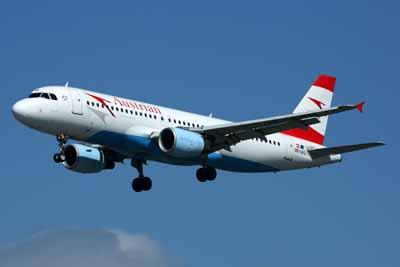
VIENNA—As Lufthansa Group evaluates how many hubs it will need after the COVID-19 crisis is over, Austrian Airlines CEO Alexis von Hoensbroech believes the Vienna hub will remain as it serves short-, medium- and long-haul routes.
Lufthansa Group operates a four-hub strategy—Frankfurt, Munich, Zurich and Vienna. Including Brussels Airlines, there is also a fifth hub in Brussels.
Von Hoensbroech told Aviation Daily in an exclusive interview that the Vienna hub “makes strategic sense. From Vienna, and especially from our Eastern European markets, we are generating sufficient demand, especially for some Asian and North American destinations,” he said. “But for sure, it is ultimately a question of the correct dimensioning regarding network and the sequence of steps in restarting our operations.”
For example, Austrian’s long-haul fleet will be downsized from its current six Boeing 767-300ERs and six 777-200ERs. The airline is evaluating how many aircraft will be phased out.
The carrier last week began negotiations with the Austrian government for a bridge loan, which it hopes will be available soon. Sources close to the negotiations told Aviation Daily the loan amount could be between €500 million ($543 million) and €800 million.
The Star Alliance member, which operates a fleet of around 80 aircraft, was forced to suspend flights from March 18 and is now scheduled to resume regular operations May 19. Austrian implemented short-time work for all 7,000 employees March 20, which has been extended to May 19.
“Our liquidity situation is good because we hibernated our company in time [grounded the fleet quite early]. Our cashbox is currently well filled, but like other airlines, it will be empty after some time,” von Hoensbroech said.
The short-time work model is helping the airline to navigate the crisis as well as possible. “Our goal remains unchanged: as soon as possible, we want to start flying again, even if it is still a long way back to a new normal,” von Hoensbroech said.
Lufthansa took over 100% ownership of Austrian Airlines in 2009.
Meanwhile, Vienna Airport has reported a 98% drop in passengers and has responded to the COVID-19 crisis with an extensive savings and liquidity protection program that includes a volume of over €220 million, which corresponds to more than 25% of planned revenue for 2020.
In addition, airport staff is also in short-time work hours. State aid packages, sufficient credit lines and other savings measures will guarantee the company’s liquidity, even if the crisis continues through year-end. Planned investments for 2020 will be reduced to a figure below €100 million.
